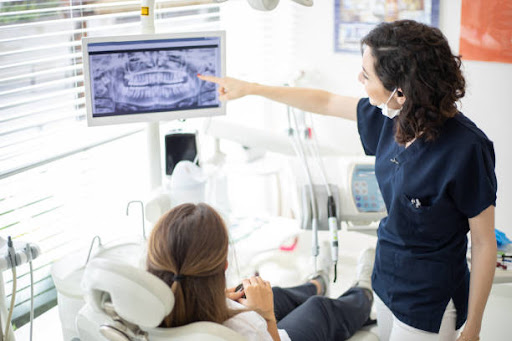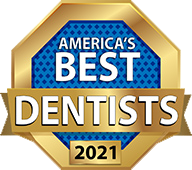
As most of us are aware, regular oral hygiene is essential to prevent cavities and maintain a bright white smile. Did you know that your teeth, gums, and surrounding bone structure play a critical role in the health of your entire body? In particular, the gums are remarkable elements of strength, but unlike other kinds of tissues, they do not regenerate when damaged, especially in the event of gum disease.
Infection of the gums and the tissues that hold your teeth in place is known as gum disease, also known as gum recession or periodontal disease. As the name implies, receded gums pull away from teeth, exposing sensitive areas and even the root of the tooth. In addition to creating convenient cavities for bacteria to settle in, gum recession can also lead to tissue and bone structure damage, bleeding, and sometimes even the loss of the tooth itself.
What causes periodontal disease?
There is a direct correlation between bad habits and periodontal disease. Those who neglect regular brushing and flossing are ideal candidates for the buildup of bacteria and plaque, which may result in the onset of disease. Symptoms of periodontal disease include bad breath, swollen or tender gums, and bleeding gums. The most concerning aspect of this disease is that it is usually painless and can be undetected until it has already spread.
There are a number of factors that contribute to this condition, including brushing your teeth too hard, genetics, grinding your teeth, and poor dental hygiene. It is always advisable to consult a periodontist in order to address the issue, regardless of its origin. Periodontists are dentists who have completed at least three additional years of residency training in the diagnosis, prevention, and treatment of gum disease. Additionally, these specialists are trained to place dental implants.
What are the advantages of seeing a periodontist over my regular dentist?
Make an appointment with a periodontist as soon as possible if you have or suspect that you have gum disease. Unlike traditional dentists, periodontists have extensive training beyond dental school and are well versed in state-of-the-art techniques for diagnosing and treating gum disease. Furthermore, they can perform plastic surgery in order to improve the appearance of your gums and smile, as well as detect oral cancer proactively.
A comprehensive periodontal examination can be requested during a regular dental visit. The examination will include probing and evaluating pockets beneath the gum line, as well as examining the color and firmness of your teeth and the overall symmetry of your bite. X-rays may also be taken by periodontists in order to examine the health and integrity of the supporting bone structure.
Additionally, periodontal probing can be performed, which entails placing a small measuring probe between the tooth and gum in order to determine the depth of existing pockets.
When is the right time to see a periodontist?
A recent study confirms that nearly half of adults over the age of 30 have gum disease. If the issue has not already progressed, some of these cases may be treated through your regular dentist. Keep an eye out for the following symptoms to help diagnose potential problems:
- An alteration in the bite when chewing, speaking, or brushing. Different bite patterns can lead to long-term problems.
- The most obvious signs of gum disease are red, swollen, or bleeding gums. In the event that you notice bleeding when brushing or flossing, you should consult a periodontist immediately to prevent minor problems from becoming more significant.
- A loose tooth may also indicate an infection or periodontitis. The loss of a tooth should never be considered a minor inconvenience or a non-issue.
- You may experience pain around or under the gums of a specific tooth if there is an infection near the root.
Prevention and treatment.
Sadly, receding gums do not grow back. However, you can prevent further recession, pain, damage, and the need for extensive surgery by taking preventative measures. A thorough cleaning can often help treat milder forms of gum recession by removing excess plaque and tartar on your teeth, as well as killing bacteria remaining on your teeth with specialized antibodies.
You can also prevent gum recession by taking care of what you already have. It is simply a matter of brushing and flossing at least twice a day and having regular dental checkups at least twice a year. Maintain a consistent healthy diet, refrain from smoking, and be aware of any abnormal changes to your teeth and mouth.
Please contact our periodontal office today to schedule an appointment.











